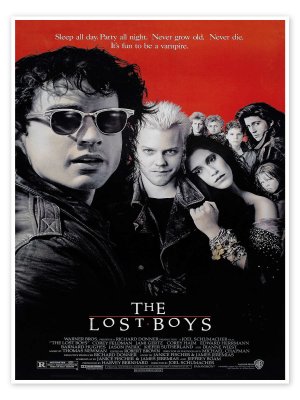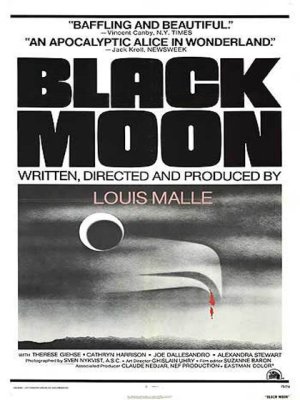Calvaire
A traveling entertainer falls prey to a disturbed recluse in director Fabrice Du Welz's twisted, slow-burn riff on Deliverance and The Texas Chainsaw Massacre. Having finished his latest performance at a remote retirement home, wandering singer Marc Stevens (Laurent Lucas) packs his gear into his van and sets out towards his next gig. Unfortunately for Marc, the fog-shrouded roads of rural France are more treacherous than he ever anticipated. When his van breaks down in the middle of the night and a skittish local promises to lead him to a nearby inn owned by the eccentric recluse Paul Bartel (Jackie Berroyer), it appears that luck may be on Marc's side and he will be back on the road with the light of the morning sun. This isn't your average bed and breakfast, though, and Bartel certainly isn't the kindly innkeeper he initially appears to be. When Marc's van is set aflame and his increasingly menacing host makes a most disturbing claim, the soft-spoken singer will be forced to fight for his life against not only Bartel, but an entire village of deeply disturbed woodsmen.
This film's English title is The Ordeal, which is absolutely right, but the literal translation - Calvary - turns out to be worryingly appropriate too, for reasons I can hardly describe without toppling away from my keyboard in a dead faint. It is a brilliant black comic nightmare about a singer, conceived in the style of Deliverance or The Hills Have Eyes, and Calvaire triumphantly proves that when it comes to subhuman degradation, Belgian hillbillies from the EU can proudly hold their own with throwbacks and knuckleheads from the US.
The sacrificial hero-victim is a travelling chansonnier called Marc, played by Laurent Lucas, an actor whose delicately handsome face is so often called upon to convulse with incredulous horror. Marc travels around in his modest van in rural Belgium, playing old people's homes and community clubs. His act consists of singing romantic French ballads, prefaced with a cheesy introduction and a choreographed flourish in which he holds up the folds of a shiny cape with his name on the back.
It's the kind of act which even Brian Potter, Peter Kay's glowering club-owner in Phoenix Nights, would hesitate before booking. But his audiences are mad for it - and him. Writer-director Fabrice Du Welz shows how Marc's unabashed warbling passion makes a powerful connection with his listeners. The music casts its spell. An elderly lady in a retirement home turns up in Marc's dressing-room afterwards and offers herself to him, and the home's director tucks sexy Polaroids of herself into his pay packet.
These are the last women, and the last sane people (relatively speaking) that Marc is to see again. After the gig, he drives up into the densely forested badlands of the Hautes Fagnes in Liège, with their barnyard-animal-abusing villagers. His vehicle breaks down and he finds himself having to accept the sinister non-help of Bartel, a ruined innkeeper and former cabaret turn who offers food and lodging to Marc on the grounds that they are both "artistes". Nervously forced to accept his hospitality as a virtual prisoner, Marc listens as Bartel tearfully explains how his wife Gloria, a singer, left him and then begs Marc to sing one of his songs. Cringing with embarrassment, Marc obliges - and the performance reminds Bartel of his errant wife so powerfully that terrible consequences ensue, made more terrible by Marc's attempts to escape. Bartel can think of only one way of immobilising Marc/Gloria in such a way as to express his adoration and rage. And Aslan the lion can think himself lucky to have got away with just having his mane shaved off.
The movie is shot by Benoît Debie, Gaspar Noé's cinematographer for Irréversible and the revolting climax is filmed with an overhead shot in a slow 360-degree spin reminiscent of Noé's now legendary rape-revenge shocker. But there is genuine comedy here too. Jackie Berroyer gets real laughs as the appalling Bartel, and the same goes for the pop-eyed protégé Boris (Jean-Luc Couchard). The two men are an 18-certificate version of Yves Montand and Daniel Auteuil in Jean de Florette.
Calvaire is clearly influenced by the great American cine-texts, and the one that came to mind was Spielberg's Duel, with Dennis Weaver so intensely proud of his gleaming automobile, so soon to be trashed. Marc says to Bartel: "I hope you didn't tow my van with the handbrake on." That is the least of his worries.
This is not going to be featured by the Belgian tourist board in its promotional literature any time soon. But if you are looking for an antidote to the Yuletide tinsel, here is a gripping, utterly involving, horribly funny movie.







